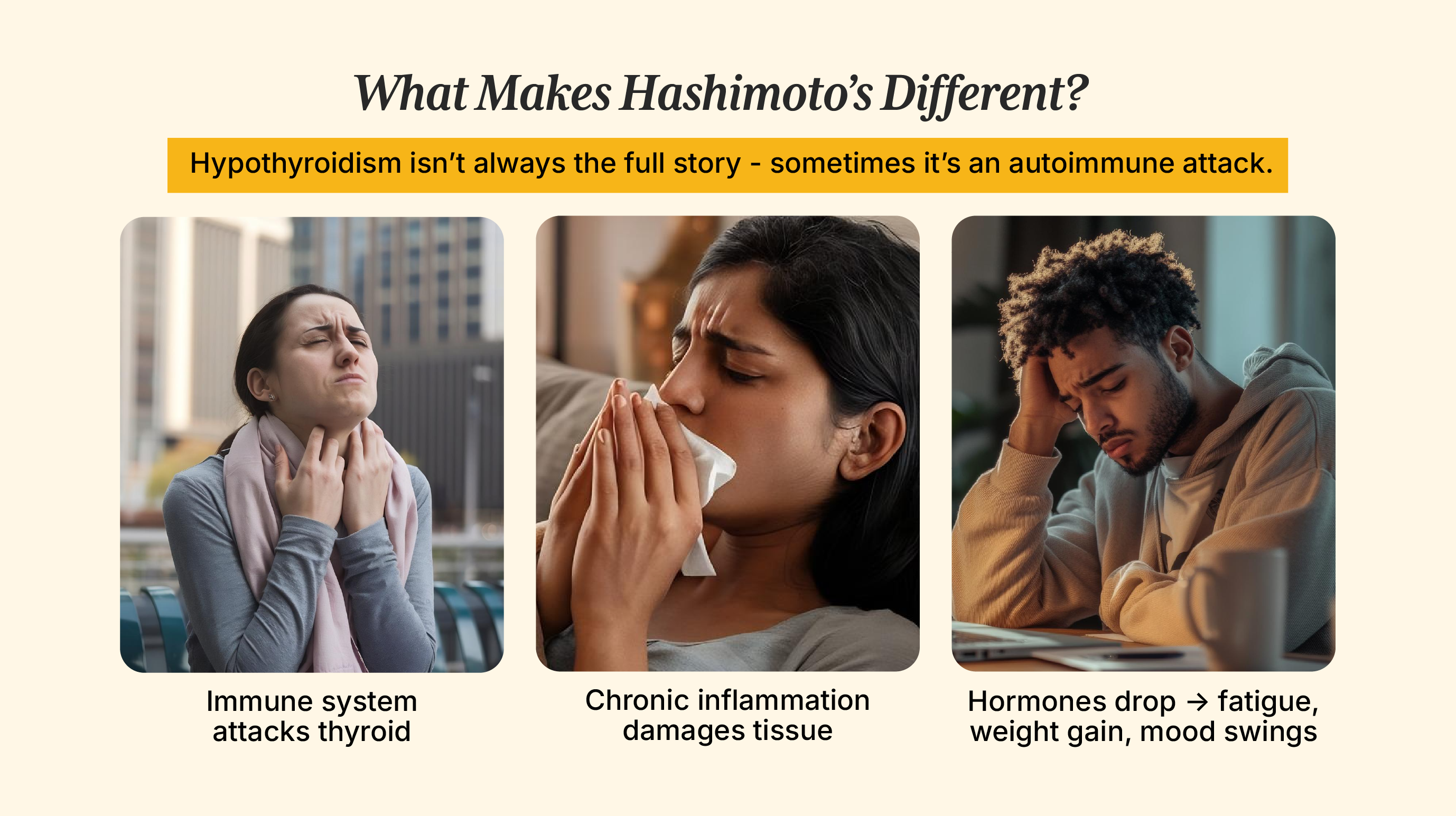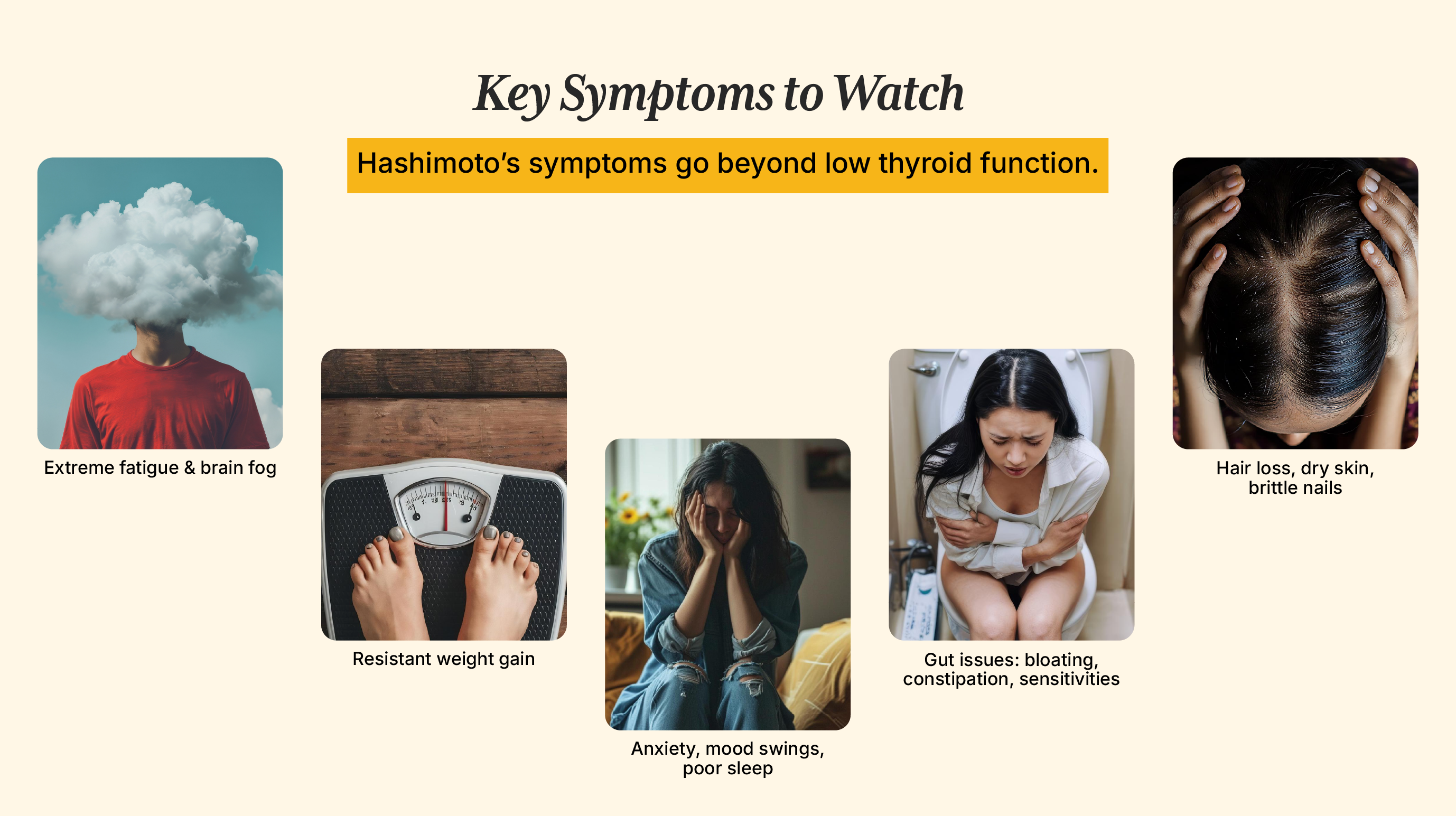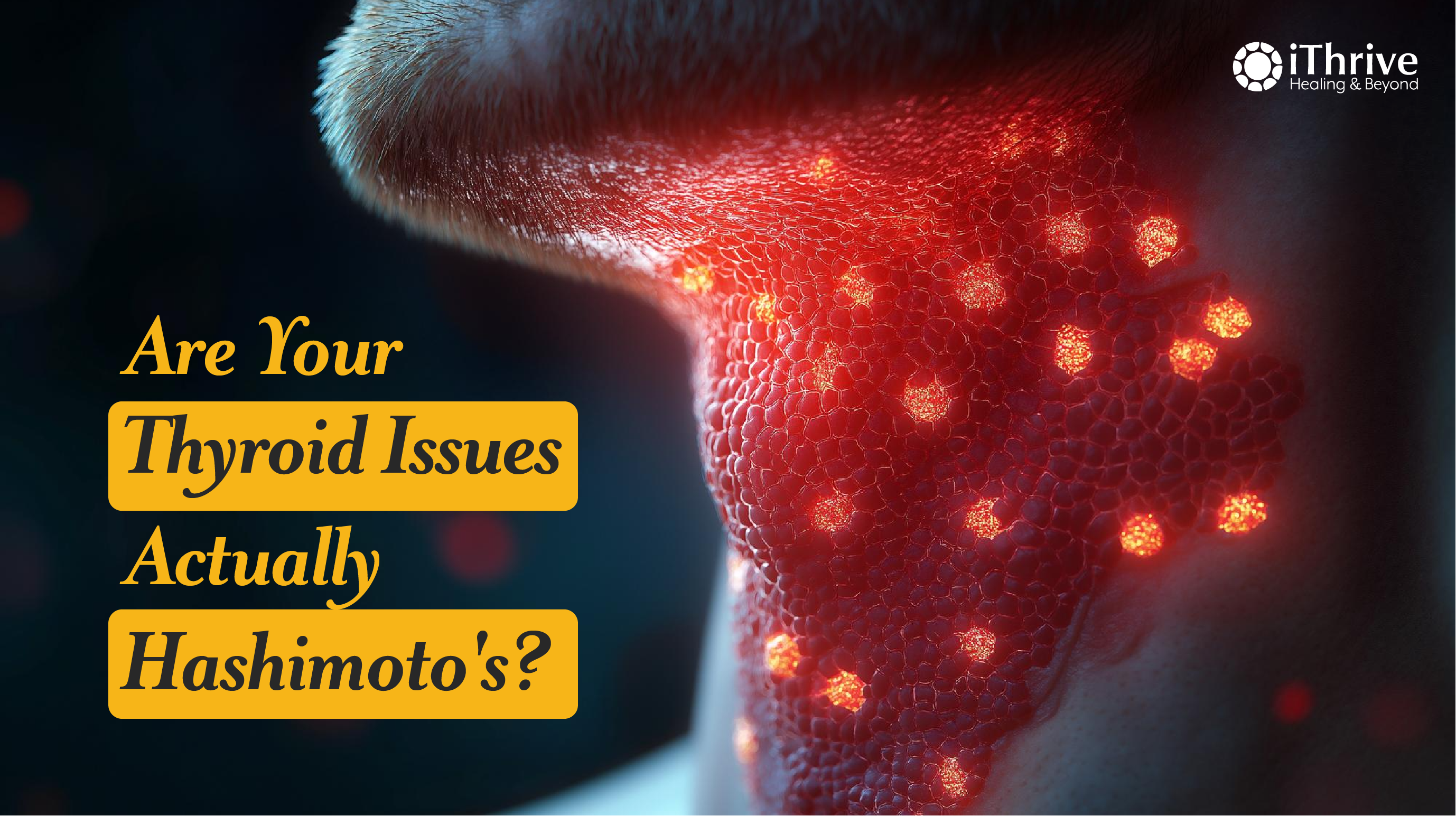Do you feel constantly tired even after a full night’s sleep? Have you noticed weight gain that just won’t budge, no matter how much you diet or exercise? Or maybe you’re dealing with brain fog, mood swings, and restless nights without a clear reason.
If you’ve been diagnosed with hypothyroidism and are on medication but still don’t feel like yourself, you’re not alone. For many, the underlying issue isn’t just a sluggish thyroid - it’s Hashimoto’s disease, an autoimmune condition and the most common cause of hypothyroidism in India (and worldwide).
Understanding this distinction is the first step toward real relief.
What Is Hashimoto's Disease?
Hashimoto’s occurs when the immune system mistakenly attacks the thyroid gland. Instead of protecting you, your immune system produces antibodies that target thyroid proteins and enzymes, causing:
- Chronic inflammation of the thyroid gland
- Tissue destruction over time
- Reduced hormone production, leading to fatigue, weight changes, and mood disturbances
In short, the thyroid isn’t the problem - it’s the victim of an immune system gone rogue.

Recognizing Hashimoto’s Symptoms
Unlike standard hypothyroidism, Hashimoto’s symptoms are broader and often linked to systemic inflammation.
Key signs include:
- Profound fatigue – exhaustion that persists despite rest
- Unexplained weight gain – resistant to diet and exercise
- Brain fog and poor memory – due to low active T3 and neuroinflammation
- Joint and muscle pain – widespread aches from inflammation
- Mood fluctuations – anxiety, palpitations, irritability during immune “flares”
- Gut issues – constipation, bloating, food sensitivities
- Physical changes – hair loss, dry skin, brittle nails, puffy face
The Importance of a Complete Diagnosis
Most doctors check only TSH (Thyroid-Stimulating Hormone) to confirm hypothyroidism. But this test alone doesn’t reveal the underlying cause.
For suspected Hashimoto’s, a complete thyroid panel is crucial:
- TSH, Free T4, Free T3 – to assess hormone production and conversion
- Thyroid Peroxidase Antibodies (TPOAb) – hallmark of Hashimoto’s
- Thyroglobulin Antibodies (TgAb) – further confirmation of autoimmune activity
Elevated antibodies are the only clear way to confirm Hashimoto’s. This changes treatment from merely replacing hormones to addressing immune dysfunction.

Recognizing Hashimoto’s Symptoms
Unlike standard hypothyroidism, Hashimoto’s symptoms are broader and often linked to systemic inflammation.
Key signs include:
- Profound fatigue – exhaustion that persists despite rest
- Unexplained weight gain – resistant to diet and exercise
- Brain fog and poor memory – due to low active T3 and neuroinflammation
- Joint and muscle pain – widespread aches from inflammation
- Mood fluctuations – anxiety, palpitations, irritability during immune “flares”
- Gut issues – constipation, bloating, food sensitivities
- Physical changes – hair loss, dry skin, brittle nails, puffy face
The Importance of a Complete Diagnosis
Most doctors check only TSH (Thyroid-Stimulating Hormone) to confirm hypothyroidism. But this test alone doesn’t reveal the underlying cause.
For suspected Hashimoto’s, a complete thyroid panel is crucial:
- TSH, Free T4, Free T3 – to assess hormone production and conversion
- Thyroid Peroxidase Antibodies (TPOAb) – hallmark of Hashimoto’s
- Thyroglobulin Antibodies (TgAb) – further confirmation of autoimmune activity
👉 Elevated antibodies are the only clear way to confirm Hashimoto’s. This changes treatment from merely replacing hormones to addressing immune dysfunction.

Conclusion
If you’re experiencing thyroid symptoms despite treatment, it’s worth asking: Could this be Hashimoto’s?
A complete diagnosis, including antibody testing, is the first step. With the right root-cause approach - focusing on gut health, nutrition, lifestyle, and stress - it’s possible to not only manage symptoms but also restore energy and vitality.
👉Take charge of your thyroid health. Book a Free Functional Nutrition Consult with iThrive and start your journey toward healing from the root.
Subscribe to our newsletter and receive a selection of cool articles every week





.png)


.webp)

.jpg)
.jpg)










